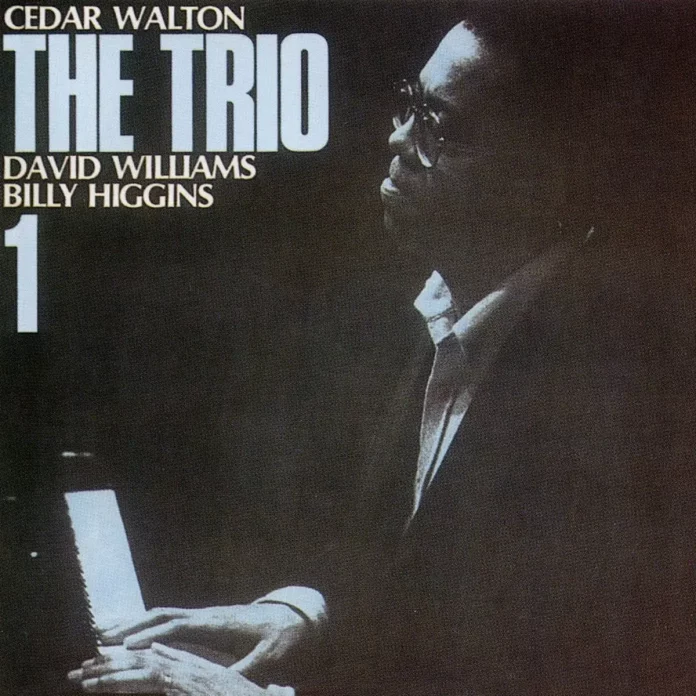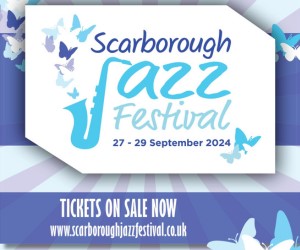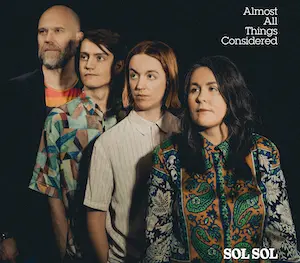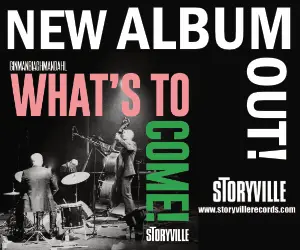Long available as separate albums, these excellent live sessions make a logical and rewarding omnibus compilation. Born in Dallas, Cedar Walton (1934-2013) was taught piano by his mother and then studied in Denver before moving to New York in 1955. After serving in the army – where he played with American jazz musicians such as Leo Wright and Don Ellis – he returned to New York where he recorded with J.J. Johnson, Art Farmer and Benny Golson and was an accompanist to Abbey Lincoln.
However, he gained his spurs when he played in Art Blakey’s Jazz Messengers, 1961-1964. Walton later claimed that his stint with Blakey improved his abilities as an accompanist and soloist. He said that Blakey “had a sort of bombastic style, but he would leave little openings for you. So you developed your radar when to get in. If you didn’t get in then, you wouldn’t be heard.”
Over a long career, Walton, although never an original stylist, was an underrated composer. He was a significant and productive post-bop pianist, and participated in over 100 recordings. Probably Walton’s best trio album was Manhattan Afternoon (1992), accompanied by David Williams and Billy Higgins, both of whom appear on these 1985/1986 live recordings from two concerts in Bologna.
The performances are a mixture of Walton originals – Ojos De Rojo, Holy Land, Jacob’s Ladder but also standards – Lover Man, Satin Doll and Every Time We Say Goodbye. Volumes 1 and 2 have bravura performances of Satin Doll, Lover Man and a long version (11.35) of Theme For Ernie with Walton at his most inventive. The following year, the trio was if anything even more relaxed, opening with a gently rocking and pulsating version of Neil Hefti’s Girl Talk. Fantasy In D (Ugetsu) – a Walton composition – evokes shades of Coltrane, while Ground Work is a showcase for drummer Higgins. The second concert concludes with an authoritative and exhilarating version of Charlie Parker’s Relaxing At Camarillo, with unobtrusive but propulsive support from Williams and Higgins. All tracks on these three CDs are in excellent sound, with clever exchanges between Higgins and the pianist.
When asked in 2010 what was crucial in providing accompaniment for an improvising ensemble he said “total listening”. As our esteemed editor reportedly observed following the initial release of these albums, they were performed by “one of the most highly regarded trios in contemporary acoustic jazz.” ’Nuff said?
Discography
CD1: My Ship; Ev’ry Time We Say Goodbye; Satin Doll; Lover Man; Holy Land; Voices Deep Within Me (50.27)
CD2: Theme For Ernie; For All We Know; Ojos De Rojo; Off Minor; Bluesville; Jacob’s Ladder (48.32)
CD3: Girl Talk; Fantasy In D (Ugetsu); Ground Work; Once I Loved; Another Star; Theme For Red; Relaxing At Camarillo (48.47)
Walton (p); David Williams (b); Billy Higgins (d). Sala Europa, Bologna, 28 March 1985, March 1986.
Red Records RR 123192-2, 123193-2, 123194-2


















